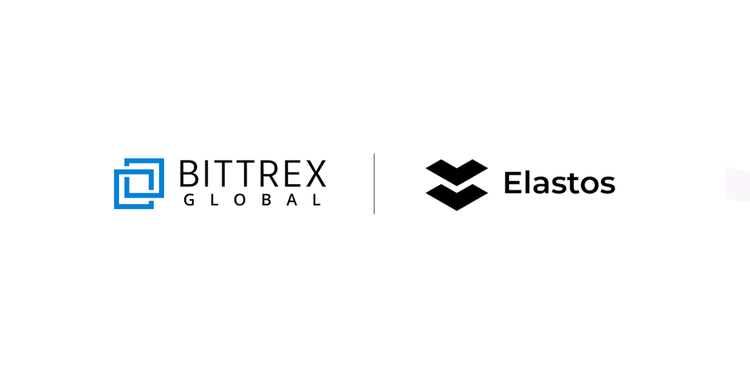Elastos, the blockchain-powered Internet project led by ex-Microsoft developer Rong Chen, has achieved a boost withBittrex Global set to list its native token (ELA).
Trading pairs for ELA will include Bitcoin (BTC) and Tether (USDT), with the products launching at 7am PDT (Pacific Day Time) on October 21. Wallet availability, meanwhile, will be rolled out a day prior at 7am PDT.
Tom Albright, Bittrex Global CEO, said:
"We're very excited to be launching Elastos' ELA token on Bittrex Global. Elastos’ commitment to open source projects and support for developers in the crypto ecosystem perfectly embodies the ethos and promise of blockchain technology. We look forward to working closely with Elastos and their committed community as they build new projects over the coming months and years."
Reimagining the World Wide Web
Created as a novel operating system for secure decentralized applications (dApps), the Elastos Smart Web runs on a peer-to-peer network with no centralized control and has been two decades in the making. Within this new kind of Internet, users retain ownership of their data and digital assets (movies, albums, games, e-books, etc), and the process of data storage and transfer is entirely decentralized.
The framework also supports traditional programming languages, making it relatively easy to write code. Elastos harnesses blockchain technology to issue trustworthy IDs for digital assets, devices and even websites.
The base currency for Elastos’ next-generation web infrastructure, ELA, is secured by the main chain, which in turn enjoys the backing of over 50% of Bitcoin’s hash power. The token has a hard cap of 33 million with circulation programmed to increase annually at a fixed rate of 4%. The Elastos Web is designed as a special economic zone where ELA tokens provide utility in terms of purchasing digital assets or dApps, or establishing ownership of digital content via smart contracts.
Manipulation of the Internet
By listing on a major cryptocurrency exchange like Bittrex Global, Elastos can build interest in its native token at a time when the Internet as we know it is being mobilized by powerful forces. Last week, human rights watchdog group Freedom House released a report indicating a decline in online free speech and privacy in 80 countries since the pandemic began.
According to the authors:
"Governments around the world have used the COVID-19 pandemic as cover to expand online surveillance and data collection, censor critical speech and build new technological systems of social control."
Social media apps WeChat and TikTok have also been an unlikely casualty of the US-China trade war, with President Trump recently declaring that both apps should be blocked from processing transactions for US citizens.
A decentralized Internet will be impossible to manipulate in this way, and Elastos aims to also create financial opportunities for content creators and consumers. In one use case described in the project’s whitepaper, novelists could release a limited number of digital books, the idea being that each title may increase in value and create potential wealth for both the author and the book owner, since it can be verifiably re-sold. The same is true of limited-edition game apps and music releases.
The Bittrex Global listing is the latest win for Elastos, which earlier this year formed a partnership with Chainlink and announced plans to launch a stablecoin protocol that collateralizes ELA tokens.


